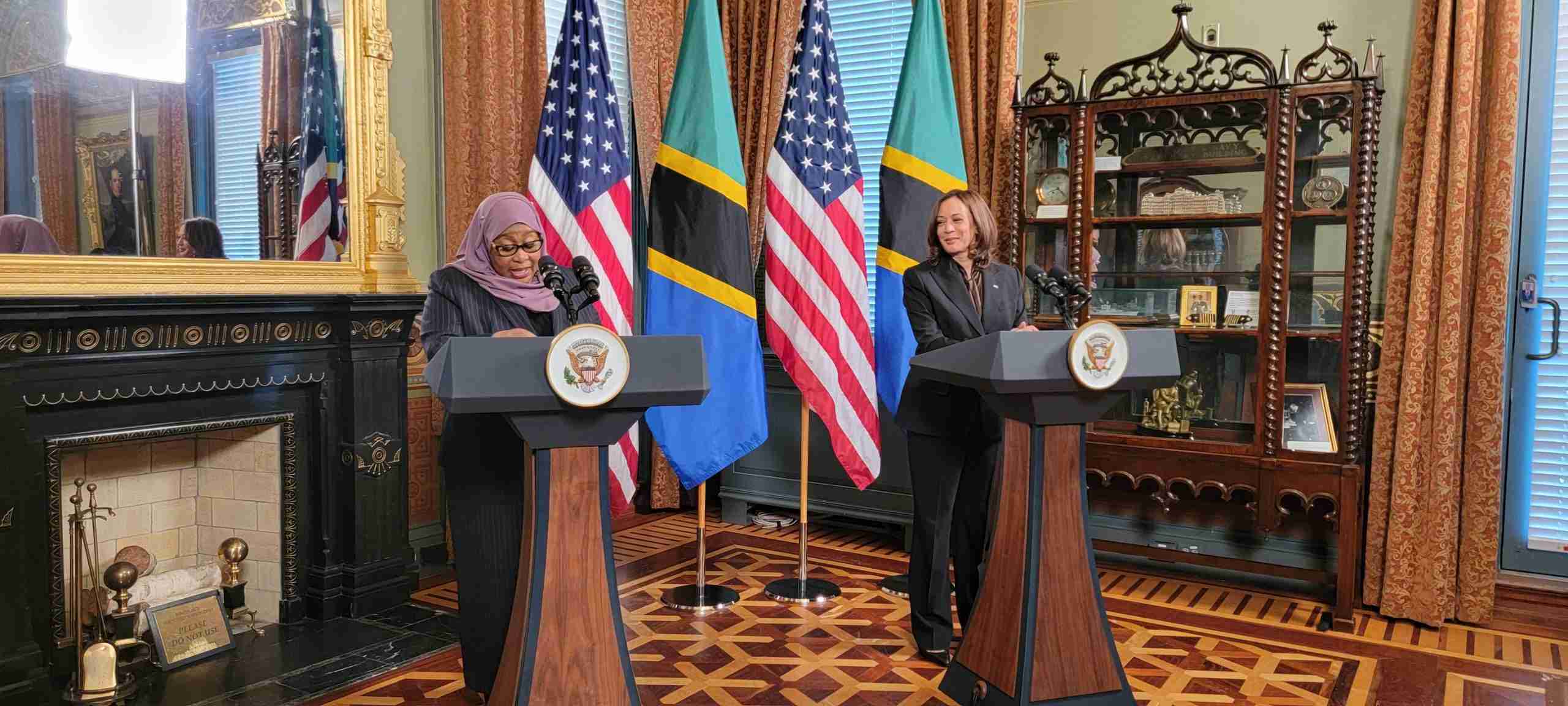U.S. Vice President Kamala Harris will step onto the front lines of the battle for western-style democracy in Africa on Thursday, spending time in Tanzania as it makes progress toward restoring its reputation as a more inclusive government.
Samia Suluhu Hassan, Tanzania’s first female president, has undone some of the country’s more oppressive policies, such as a ban on opposition rallies, even though she came to power as a member of the ruling party.
She’s finishing out the term of President John Magufuli, who died in office and earned a reputation for stamping out dissent, arresting critics and forcing them into exile. Hard-liners have been uncomfortable with some of Hassan’s changes, however, which could cost her in the next election two years from now.
Harris, the first woman to serve as U.S. vice president, will meet with Hassan on Thursday, a noteworthy show of support from Washington as the United States deepens its outreach to Africa.
“There’s so much excitement here and people are saying it’s like Madam President’s efforts in changing the country are being rewarded with recognition from an economic and political superpower that is the U.S.,” said Tanzania-based analyst Mohamed Issa Hemed.
During a previous meeting in Washington, Harris told Hassan that “we welcome the progress that you have made during the course of your leadership and, in particular, the work you have done to empower women leaders in Tanzania and the work you have done to support human rights.”
Harris arrived in Tanzania late Wednesday after spending three nights in Ghana. Much like at her first stop, she was greeted with music and dancing as she walked down a red carpet that was rolled out to Air Force 2. Some of the welcoming party wore shirts with Harris’ face.
Harris is scheduled to spend two nights in Tanzania, then conclude her weeklong trip with a stop in Zambia, another country that is striving to strengthen its democracy. She plans to return to Washington on Sunday.
Idayat Hassan, director of the Centre for Democracy and Development in Abuja, Nigeria, said Harris’ visit can help galvanize enthusiasm at a time when there are concerns over backsliding into authoritarianism in Africa and around the world.
“Many people will want the U.S. to speak to the issue of democracy, which they feel is beginning to decline and is not what it used to be,” she said. “There are more that need to be assured that democracy is here to stay.”
Like Tanzania, Zambia has made uneven steps toward democracy since its independence. However, there’s been a burst of hope after the country elected Hakainde Hichilema, a former opposition leader who once faced charges of treason.
Zambia has since decriminalized defamation of the president, a law that was used to stifle opposition. It’s also serving as a co-host of President Joe Biden’s second Summit for Democracy this week.
However, Hichilema warned this week that economic progress is necessary to sustain open societies.
“You can’t eat democracy,” he wrote in The Washington Post. “Human rights may sustain the spirit, but not the body.”
Source: AP






